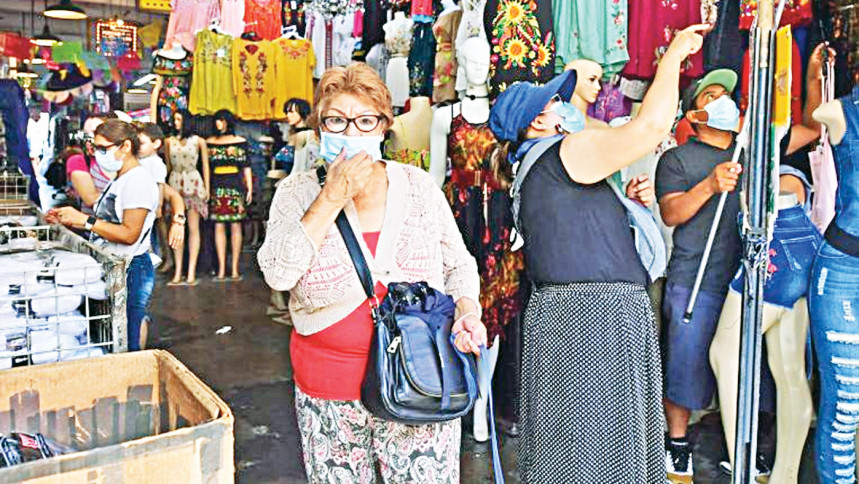US growth ‘downshifted’ amid labour, supply shortages

US economic growth "downshifted slightly" in July and August amid shortages of workers and materials, as well as concerns about the rise of the highly transmissible Delta variant of the virus that causes Covid-19, the Federal Reserve said Wednesday.
And while those shortages also caused rising wages and prices in some areas, the report of a slower recovery could add weight to the argument that the central bank should hold off on plans to withdraw stimulus to the world's largest economy.
The nationwide surge in coronavirus infections has led to the reimposition of some restrictions and mask-wearing rules, and delayed the return to the office for some businesses.
In its "beige book" report on the economy, the Fed said the recent growth slowdown was largely due to "a pullback in dining out, travel and tourism in most districts, reflecting safety concerns due to the rise of the Delta variant.
"But activity declined in some areas of the country due to labor issues and "pervasive resource shortages" that also were driving up prices, the report said.
With inflation picking up and progress made on restoring jobs lost during the pandemic, Federal Reserve Chair Jerome Powell has signaled the central bank expects to begin to pull back on its massive bond-buying program by the end of the year.
However, he acknowledged that the Delta variant has introduced uncertainty about the course of the recovery.
In a speech Wednesday, the president of the Fed's New York branch, John Williams, cautioned that "a full recovery from the pandemic will take quite some time to complete.
"He also echoed Powell's position that the recent spike in inflation is mostly due to temporary issues and the rate should drop back to around two percent next year from double that currently.
However, "there is still a great deal of uncertainty about the inflation outlook," Williams said.A sustained rise in inflation is a concern for the White House, which on Wednesday announced an initiative to contain rising meat prices.
Linking consolidation in the meat industry to food price increases that have contributed to overall inflation, the White House said it would invest $1.4 billion into the food supply chain aimed at small businesses, as well as crack down on price fixing and antitrust violations in meat processing. The Fed report noted that sales of autos and homes in the United States were depressed by low inventory, while retail sales growth slowed, but construction rose modestly.
The analysis, prepared in advance of the Fed's next policy meeting on September 21-22, said contacts in most districts "remained optimistic about near-term prospects, though there continued to be widespread concern about ongoing supply disruptions and resource shortages.
"The rapid reopening of businesses following the pandemic shutdowns has posed a challenge for global shipping and production of raw materials, including a worldwide semiconductor crunch that has hit the auto sector.
Likewise, strong demand for workers has kept employment rising overall, but the pace has been slowed in all districts by "extensive labor shortages that were constraining employment and, in many cases, impeding business activity.
"The Fed cited "early retirements (especially in health care), child care needs... and enhanced unemployment benefits" as factors contributing to the difficulty in filling open positions, as well as rising wages in some regions.
The government employment report Friday showed a disappointing 235,000 jobs were added in August, even as the jobless rate fell to a pandemic low of 5.2 per cent.
"I cannot stress enough that we still have a long way to go to get back to our maximum employment goal," Williams said.
Source: www.thedailystar.net
